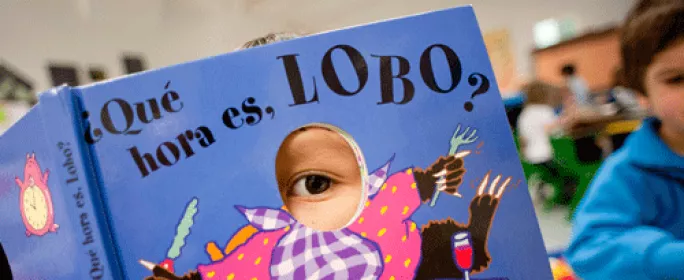Ofsted orders specialist free schools to improve
Two free schools - one specialising in bilingual education and the other in music - have been censured by Ofsted inspectors for not teaching their main disciplines properly, and both have been told to improve.
It has also emerged that one of them - Bilingual Primary School in Brighton - has been criticised for paying thousands of pounds to its chair of governors for services such as showing parents around the school.
The primary is one of the first state schools in the country to teach the curriculum in two languages. But Ofsted has found that its lessons in Spanish were not up to scratch and that pupils were able to get away with waiting for English translations.
Meanwhile inspectors reported that singing teaching in Dixons Music Primary, in Bradford, which bills itself as “the first specialist music primary school in the country” was “not as good as it needs to be”.
Both schools are deemed to “require improvement” in Ofsted reports published last week. But there was also better news for the free-school movement as the progressive School 21 in East London, founded by Peter Hyman - a former Downing Street aid to Tony Blair - was judged “outstanding”.
On average, free schools have slightly better Ofsted verdicts than the state sector as a whole. But all serious criticism of free schools is a potential embarrassment for a programme specifically designed to raise standards.
Bilingual Primary set out to be “the leading model for bilingual education in the UK, offering the very best of British education through a comprehensive programme of learning through English and Spanish”.
But inspectors found that its pupils’ bilingual and Spanish skills were “not well developed”, “because teaching of Spanish is not sufficiently well thought out”.
“English and Spanish are often used side-by-side,” the Ofsted report continues. “Pupils realise that rather than trying to understand what is said in Spanish they can wait for it to be translated into English.
“Staff do not routinely expect pupils to respond in Spanish and, when they do, they too readily accept just one word or a short phrase.”
Head, Carolina Gopal, told TES she did not believe the Ofsted team fully understood bilingual education and said they had not observed the children’s reading, writing or translation.
“At our school bilingual education it is a success story, the parents can see that,” she said. “We just believe this report was not a true reflection of the school.”
It is not the first critical official report for the free school, which opened in 2012. In April, Department for Education auditors found the primary had paid its chair of governors, Marina Gutierrez, £10,800 for various services without putting them out to tender.
The auditors said the free school had broken official rules which say that governors “must not gain from their position by receiving payments under preferential terms”. But they said the payments for services which included “individual parent tours” and “uniform research and stationery procurement” were “provided at a low daily rate of £40-£50”.
Ms Gopal said Ms Gutierrez had given up a full-time job to help the school and done a lot of extra work that she had not been paid for.
Financial controls in free schools have become a controversial issue since police began an ongoing fraud investigation into the Kings Science Academy in Bradford.
At Dixons Music Primary, another Bradford free school, Ofsted inspectors have found that leadership of the school’s music specialism “is not effective”.
“The specialist teaching of music requires improvement,” their report warns. “Over time, pupils have not developed the good singing habits and the skills needed to sing well.”
But it adds that the instrumental tutoring pupils receive from specialist music teachers is beneficial.
Ofsted reports on all but six of the 79 free schools open since 2012 have now been published. Two thirds have been judged good or better, compared to 62 per cent of all state schools inspected under the same regime in 2013/14.
Nearly a quarter - 23 per cent - of free schools have been judged “outstanding” compared to just 9 per cent of all state schools during 2013/14, although Ofsted has focused on schools “at risk of decline”.
Last week, School 21 became the 17th free school to receive an “outstanding” Ofsted verdict. Inspectors said it was “an exciting place to learn”, and that “outstanding leadership has produced a highly effective school within a short time”.
Related stories:
The teachers using rap and hip-hop to help students learn: July 2014
Keep reading for just £1 per month
You've reached your limit of free articles this month. Subscribe for £1 per month for three months and get:
- Unlimited access to all Tes magazine content
- Exclusive subscriber-only stories
- Award-winning email newsletters




